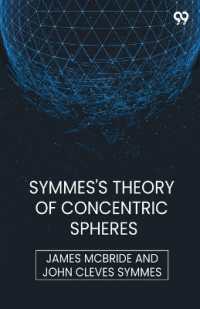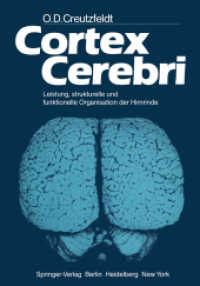Full Description
This book provides an overview of the various 'Science of Learning' (SoL) research projects led by researchers at the National Institute of Education, Nanyang Technological University, Singapore, and international research collaborators.








